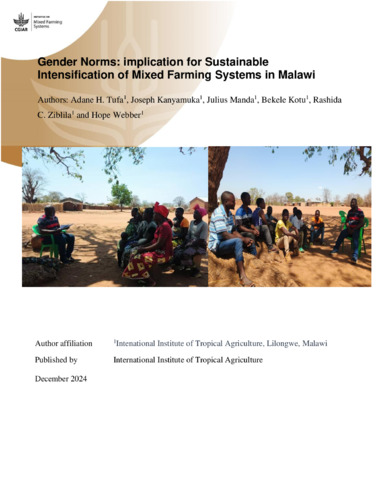Gender Norms: Implication for Sustainable Intensification of Mixed Farming Systems in Malawi
Abstract
Gender roles, shaped by traditional societal expectations, significantly influence the responsibilities that men and women undertake to ensure household food security in many parts of the world. These roles, guided by both gender and general cultural norms, dictate behaviors, roles, and responsibilities that societies assign to men and women based on their gender. In sub-Saharan Africa (SSA), while gender norms vary across communities, certain patterns remain consistent. For example, women often have limited control over critical resources such as family land and are frequently excluded from important household decision-making processes. Their contributions are typically confined to household management, and they often need spouse approval to engage in new activities, including agricultural practices. These restrictive norms can affect women's participation in agricultural activities and their adoption of agricultural technologies, including sustainable intensification (SI) practices (Tufa et al., 2022; Nchanji et al., 2023), which aims to increase agricultural productivity while minimizing environmental degradation. However, women face distinct barriers to adopting SI technologies.

